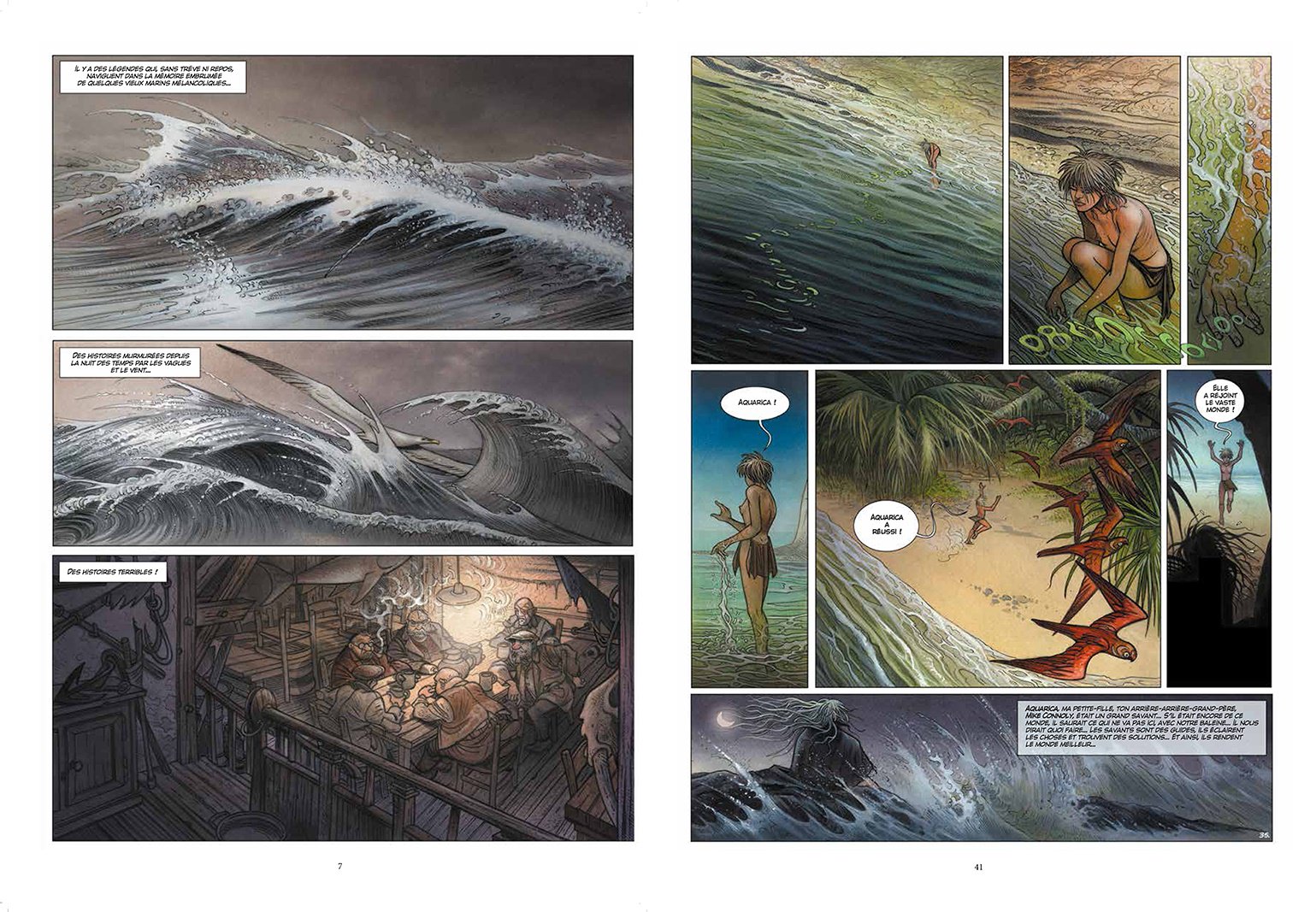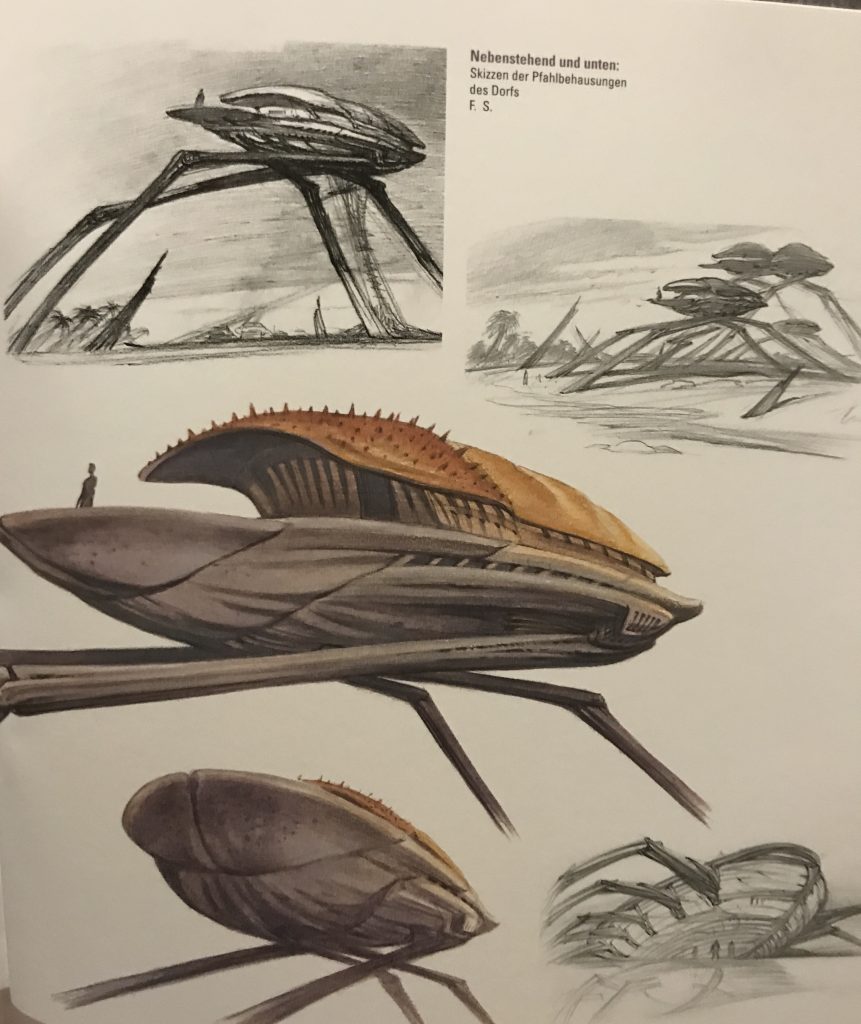In a comic book by French authors Benoit Sokal and Francois Schuiten from 2022, an ancient maritime myth is picked up in a comic format. The story is about a small community of refugees who once settled on the back of a giant whale floating in the ocean. The animal is so vast, that it’s back appears like an atoll or a small island. Vegetation grows and various animals have settled, attracted by the mild climate created by the warmth of the animal’s body. After seventy years however there are conspicuous signs that the whale is starting on her journey towards the North Pole, endangering the survival of the small society that has made her back it’s home.

Essentially, the environment for this community is similar to many coastal and island communities: The living conditions are rather comfortable but there is a constant danger of drowning. Whenever the whale moves or sinks, the sea becomes agitated and rises threatening the human settlements.
The authors have come up with a clever piece of bionics as adaptation measure for this condition. The community lives in giant crab-like houses (or rather house-like crabs). These housings have long legs to elevate and hatch like roofs that can close and seal the interior against water in case of inundation. Some of these giant crabs apparently can also swim and cover large distances individually. Here are some sketches from my edition of the book:

This design is not so unlike the houses on stilts that were once common in Bangkok and can now be found again in places like Makoko in Lagos or Apung Teko in Jakarta. Of course these moving and amphibious crabs are much more sophisticated. To inhabit and navigate the crabs, humans had to develop into a symbiotic existence with them. The whole lifestyle of this small community is highly symbiotic and so far adapted to it’s host/surrounding, eventually making it impossible for them to leave. That certainly is the tragedy of this little floating eco-topia.
The two volume book is a wild mixture of maritime folklore, pop-culture references (Moby Dick, obviously), romantic fairy tale and eco-fantasy. Too crude and stagy for my personal taste, but nevertheless interesting as a twist on an old maritime myth – for reference see my post on whales as islands here – seen under today’s light of climate adaptation imperative.